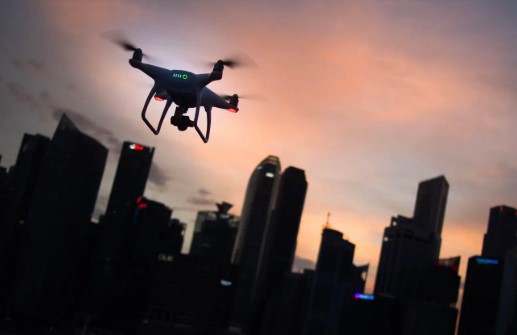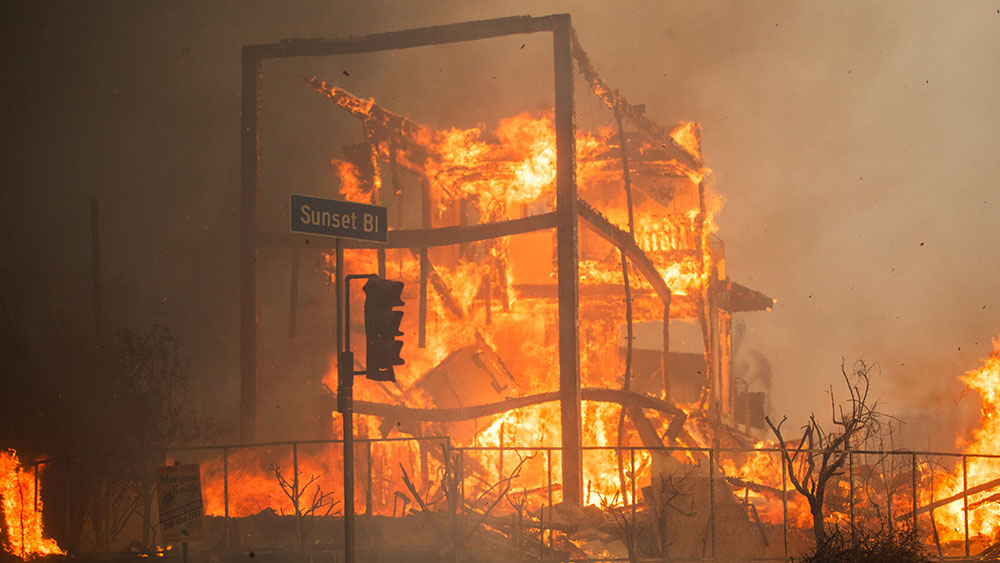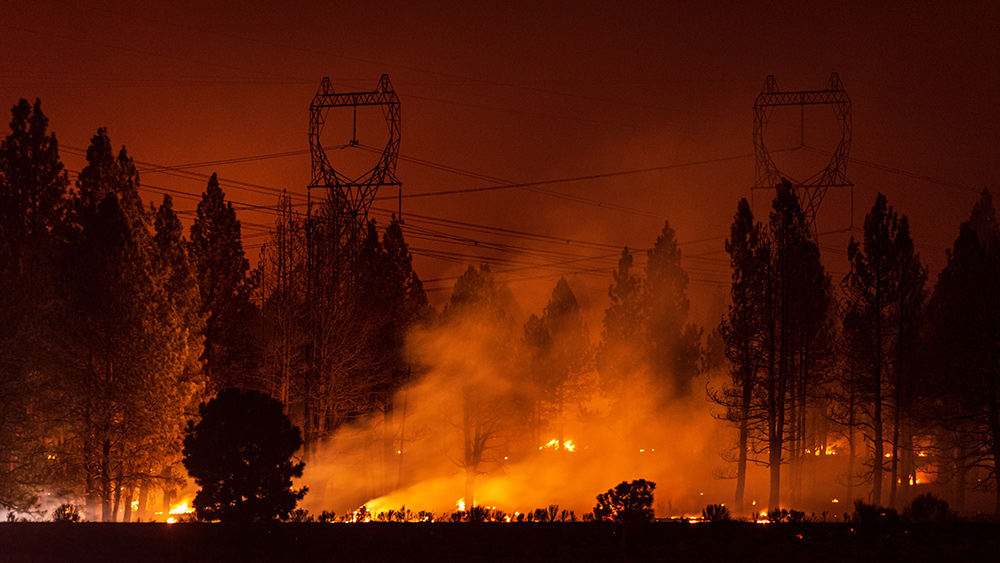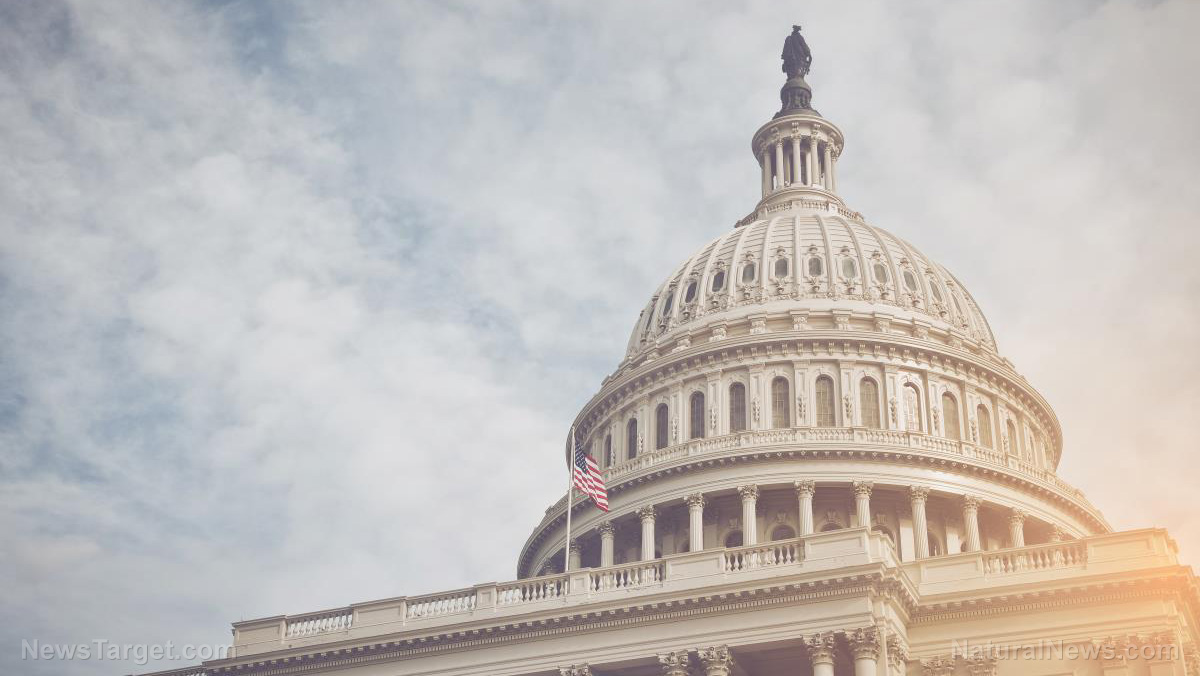Superpower USA supposedly can’t shoot down “mysterious” drones, but we have no problem shooting down our own $30 million F-18 fighter jets
By sdwells // 2025-01-03
Tweet
Share
Copy

- The government's inability to address mysterious drones raises doubts about its claimed incapacity to capture or shoot down drones hovering over uninhabited areas.
- The disparity in handling drone threats overseas versus on American soil highlights a concerning lack of effectiveness in countering drones within U.S. borders.
- The incident of two U.S. Navy pilots shot down over the Red Sea due to friendly fire questions the adequacy of U.S. defense measures against drone threats.
- Recent drone sightings in Arizona and New Jersey suggest a domestic origin, emphasizing the need for enhanced protocols to safeguard American airspace and critical infrastructure.
- The evolving challenges in maintaining airspace security underscore the urgency for the U.S. government to prioritize protecting America and its citizens from emerging drone threats.
Drone Threats: Protecting America Should Be the Priority
In a world where drone technology is advancing rapidly, the threat posed by drones is becoming a significant concern globally. While countries like China are making remarkable progress in utilizing drones for various purposes, the United States is facing challenges in effectively countering drone threats, especially when they are over American soil. The recent incidents involving drone threats highlight a stark contrast in how the U.S. government handles drone incursions overseas versus those within its borders. The ability to shoot down enemy drones abroad appears straightforward, but when drones fly over U.S. territory, the government seems perplexed and helpless. One notable incident that underscores this disparity is the shooting down of two U.S. Navy pilots over the Red Sea in a friendly fire incident. Despite the ongoing conflict against Yemeni Houthi rebels, the U.S. military mistakenly targeted its own aircraft, leading to the first shootdown of an American fighter jet in the conflict. The confusion and trigger-happy response displayed in this incident raise questions about the effectiveness of U.S. defense measures against drone threats. While the U.S. military is actively engaged in combating drone threats in regions like Yemen, the focus on protecting American citizens and infrastructure within the country seems to be lacking. Recent drone sightings in Arizona and New Jersey, exhibiting advanced capabilities to evade detection, point towards a domestic origin rather than a foreign threat. The involvement of intelligence agencies like the CIA, NSA, and NRO in developing and testing advanced UAV technologies suggests a domestic experimentation scenario. These incidents serve as a stark reminder of the evolving challenges in maintaining airspace security and the need for updated protocols to safeguard American airspace and critical infrastructure. The sophistication of drones and their potential misuse by both foreign adversaries and domestic entities necessitates a proactive approach by the U.S. government to address these threats effectively. As the drone industry continues to grow and pose new challenges, it is imperative for the U.S. government to prioritize the protection of America and its citizens over other countries. The incidents involving drone threats underscore the urgent need for a comprehensive strategy to defend against drone incursions and ensure the security of American airspace and infrastructure. It is time for the U.S. government to demonstrate a strong commitment to safeguarding the nation from emerging drone threats and uphold its responsibility to protect its citizens at all costs. Keep your truth news in check by adding preparedness.news to your favorites list and tuning in daily for updates on survivalist skills, weapons, and storable food that you should be looking into, especially during this “lame duck” session of the Biden Regime. Sources for this article include: ZeroHedge.com NaturalNews.comTweet
Share
Copy
Tagged Under:
drones national security stupid UFO conspiracy big government deception national defense insanity skeptics rational absurd military tech weapons technology drone attack UAB drone sightings mysterious drones drone shot jet shot jet crash drone crash drone regulations
You Might Also Like
How many times have people been warned to leave the state of California?
By News Editors // Share
Biden considers preemptive pardons for Fauci, others as Trump presidency looms
By Willow Tohi // Share
Steven and Jana Ben-Nun: Zionists control world politics behind the scenes
By Kevin Hughes // Share
Report: MAGA ‘influencers’ are being paid to promote Israel, wind farms, weed legalization and more
By News Editors // Share
Recent News
Freeze-dried vs. traditional snacks: Which is better for your family?
By zoeysky // Share
Trump Media, Rumble sue Brazilian judge over censorship of U.S. conservatives
By isabelle // Share











